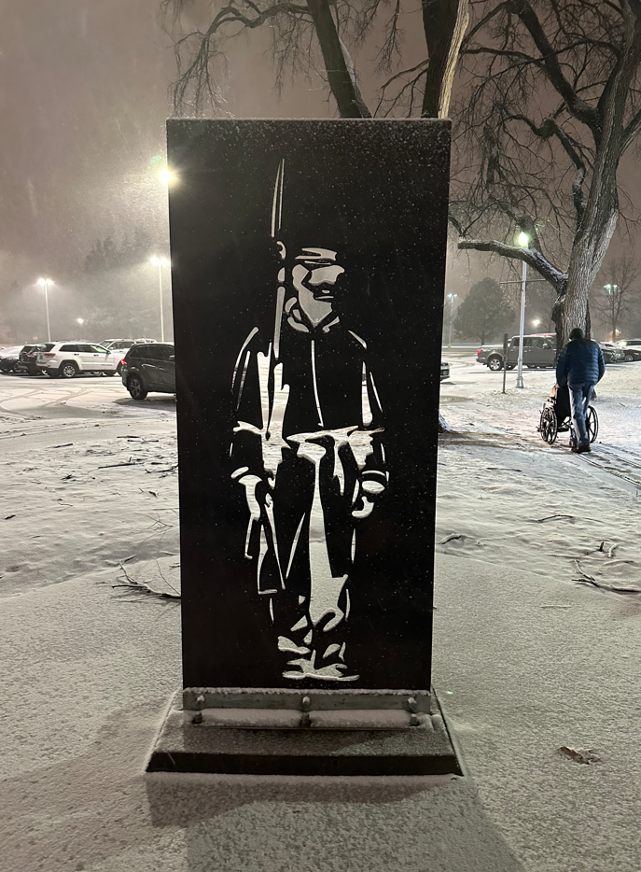Clay County Histories
Markus Krueger | Program Director HCSCC
One of the perks of living in our melting pot country is we get to celebrate a lot of different cultural festivals. We Americans remember our roots and invite our friends to learn more about us through events like St. Patrick’s Day pub crawls, the Scandinavian Hjemkomst Festival (June 21-22), and I had a blast “playing Holi” with my Indian American friends as we threw powdered paint at each other in the snow.
Many of these festivals have roots in history, and history is usually complicated. Oktoberfest, our German American celebration, began as the 1810 wedding party of a Bavarian monarch. Sure, this guy turned out to be a rotten king who lost his job in the 1848 Revolution, but nobody actually remembers obscure King Ludwig as we eat our pretzels and enjoy our polka. Contrast that with Columbus Day, which began as our country’s celebration of Italian heritage. Anyone who looks deeper than a children’s book discovers Christopher Columbus was a thoroughly unpleasant man who was despised by all who knew him, and his arrival brought about apocalyptic horror to the Indigenous Americans that he met. The controversial man eclipsed Italy as the subject of this holiday, and in time, communities like ours officially replaced Columbus Day with Indigenous People’s Day. No offense, Italy.
Sadly, injustice and unfairness is a common theme across 400 years of African American history. You can’t understand the amazing life of Frederick Douglass, or read the poems of Langston Hughes, or celebrate the deeds of Jackie Robinson and Ruby Bridges, or listen to the Blues, without acknowledging what they struggled against. Juneteenth, our country’s celebration of African American culture, deals with difficult history by putting it center stage. The date, June 19, is a celebration of the end of slavery. And the date chosen forces us to ask ourselves: when did slavery end?
Americans could have chosen September 22, the day Abraham Lincoln announced the Emancipation Proclamation in 1862, or January 1, the day it went into effect in 1863. But this proclamation only legally freed slaves in rebelling states. The vast majority of enslaved people were still enslaved because they lived in Confederate controlled territory. It didn’t matter that Abraham Lincoln says you’re free because Jefferson Davis says you’re not. The USA had to win the war for slavery to end.
Starting in 1863, the US Military (which included 209,000 African American soldiers and sailors) was an army of liberation, freeing people wherever it went. Enslaved people took their freedom into their own hands by escaping as soon as they heard a US Army or Navy unit was within reach. Freedom was a process, and each individual had their unique freedom story.
Was freedom complete when Robert E. Lee surrendered to Ulysses S Grant on April 9, 1865? No, because other Confederate armies hadn’t surrendered yet and enslavers were still enslaving people wherever our military had not yet reestablished the authority of the USA. On June 19, 1865, General Gordon Granger arrived in Galveston, Texas, announcing for anybody who hadn’t heard it yet that the USA is back in charge and anybody who is still enslaved is now and forever free. According to American tradition, Galveston was the last community to hear this good news. African Americans around Galveston celebrated the anniversary of that date the following year, and the year after, and the celebration spread to other communities from there. The timing of Juneteenth makes the point we shouldn’t celebrate the end of slavery until the last enslaved person is liberated. American freedom isn’t complete until we are all free.
You don’t need to know all that to enjoy yourself at Fargo’s Juneteenth celebration on June 15 (Broadway Square 12-6pm), or Moorhead’s celebration on June 17 (Hjemkomst Center 4-8pm). But one of the many beauties of Juneteenth is that the deeper you go into the history behind it, the more interesting and inspiring it becomes.


